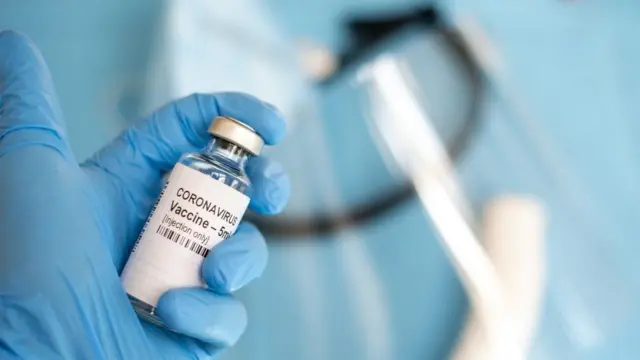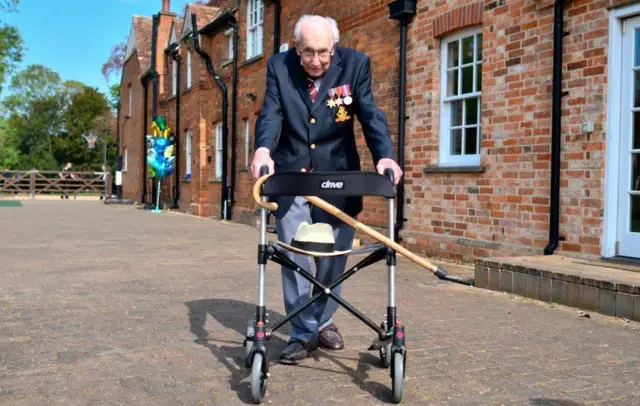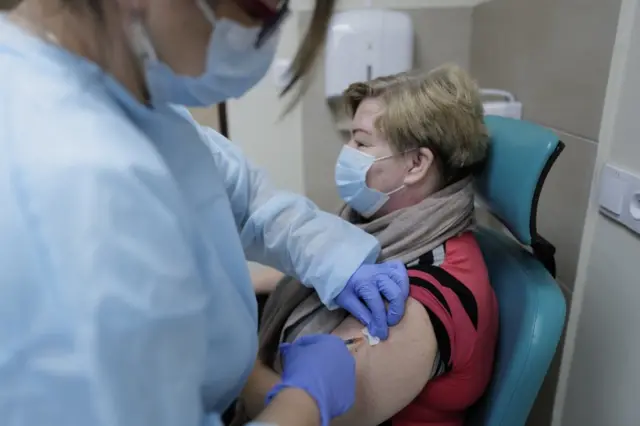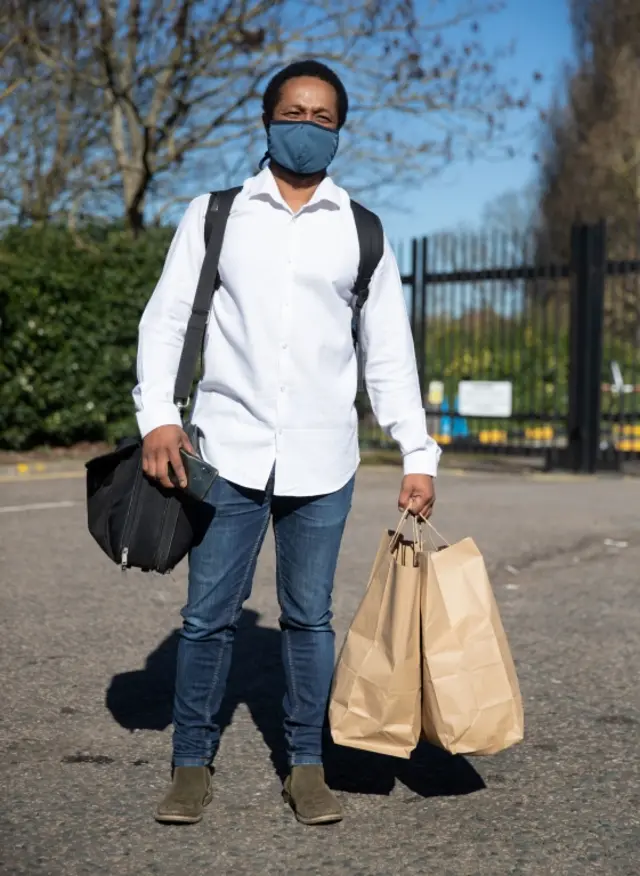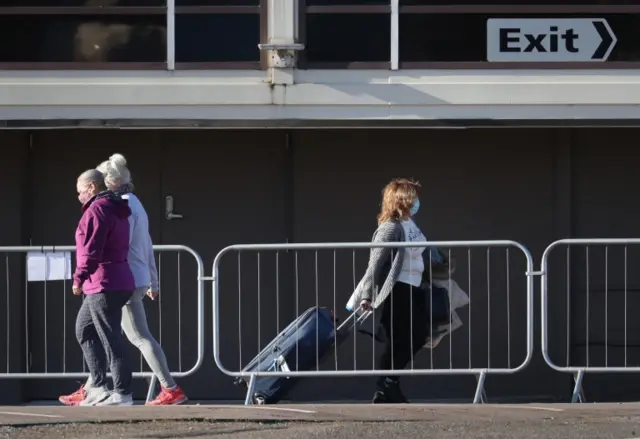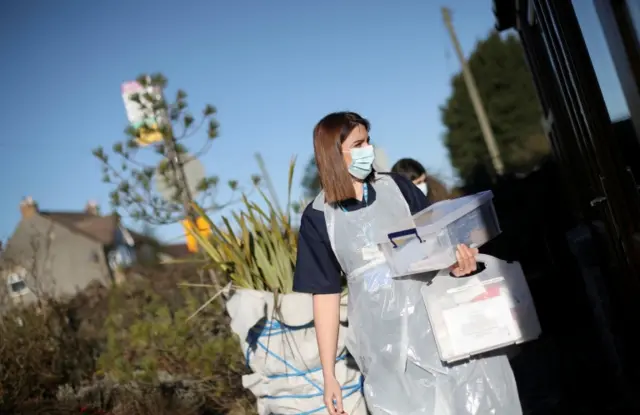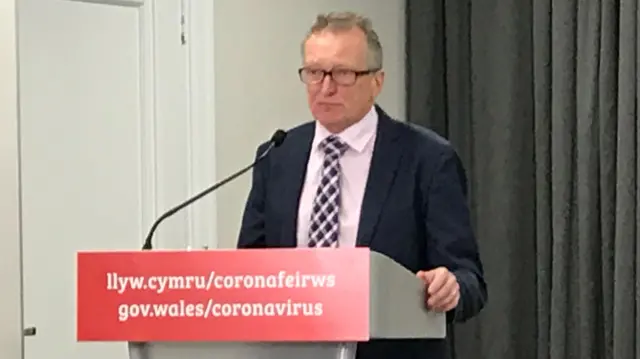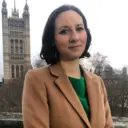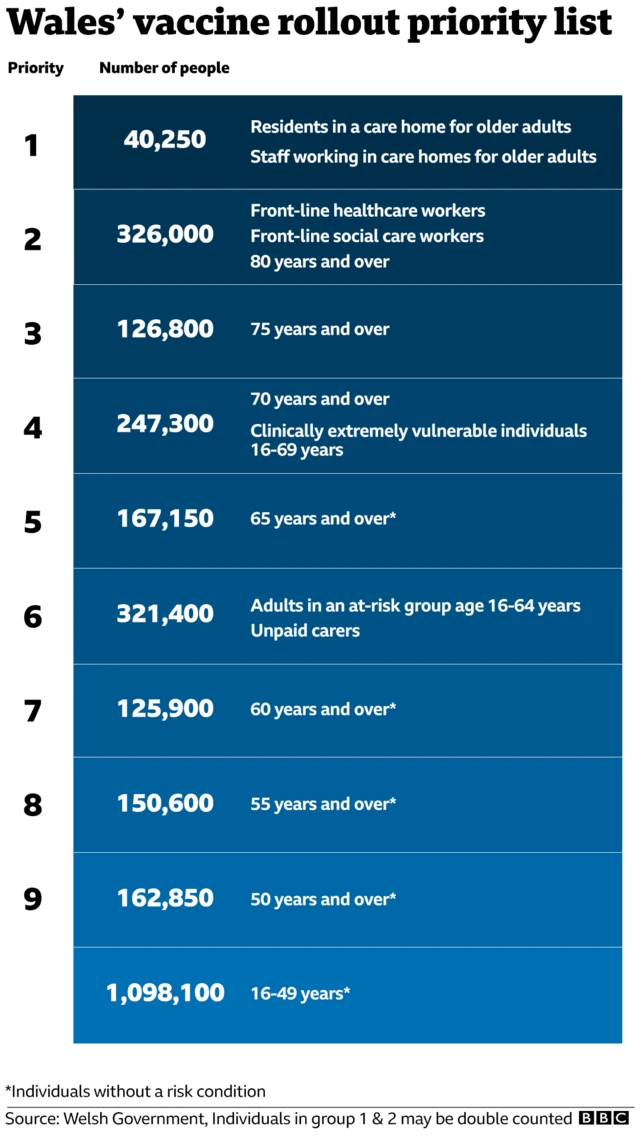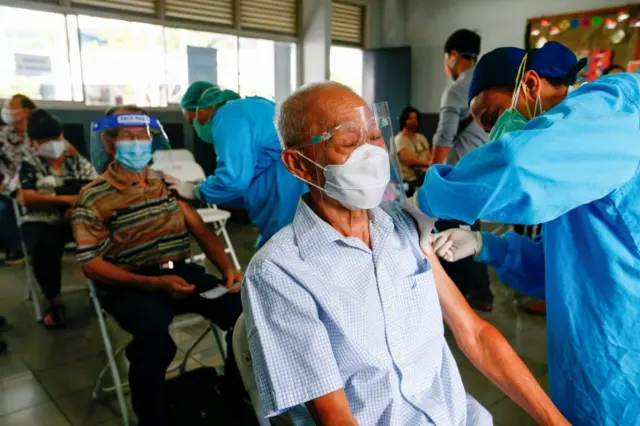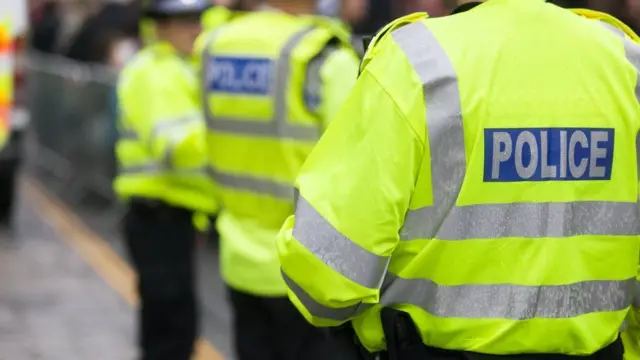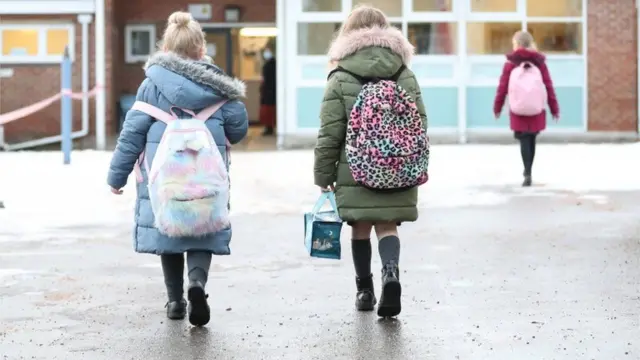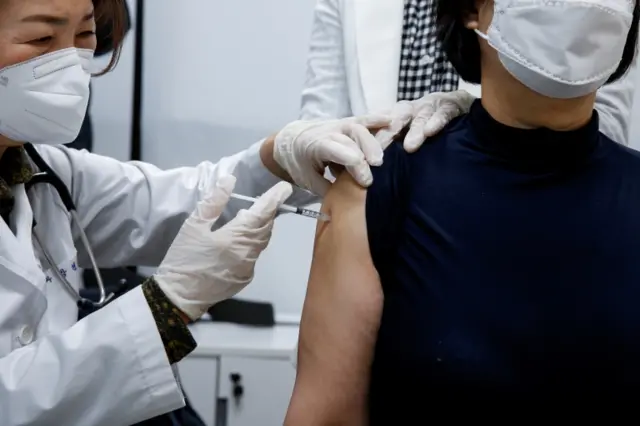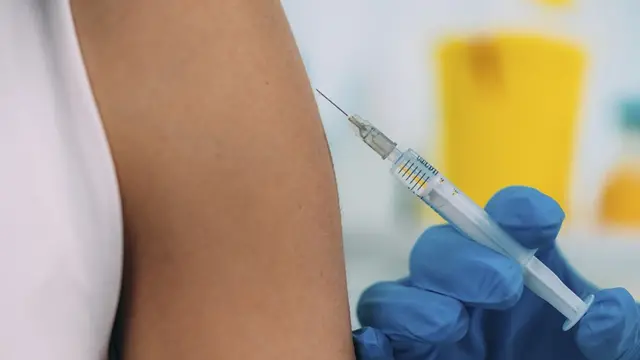How does the R number vary across the UK?published at 15:20 GMT 26 February 2021
As we reported earlier, this week's R number across the UK remains unchanged at 0.6-0.9.
The R number is an estimate that indicates whether the epidemic is growing or shrinking.
An R number of 0.6-0.9 means that, on average, every 10 people infected will infect between six and nine other people.
But how does the R number vary across the UK nations and regions?
As the below graphic shows, the R number is estimated to be lowest in the East of England, London and the South West of England.
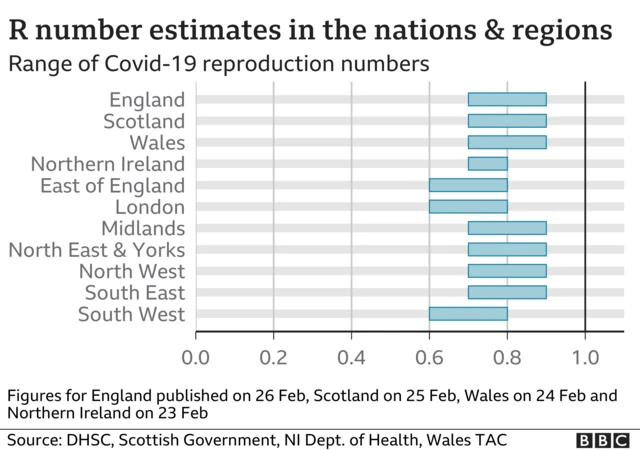
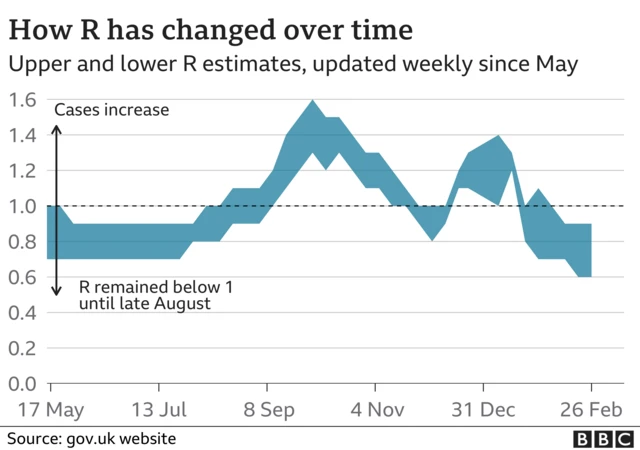
And this graphic shows how the R number has changed over the course of the pandemic.
